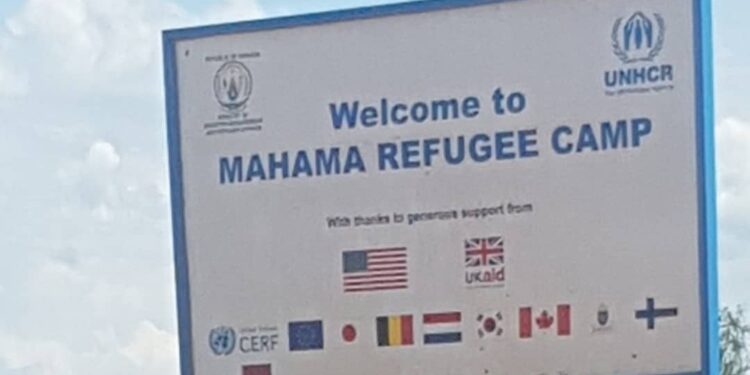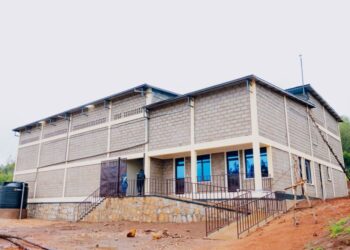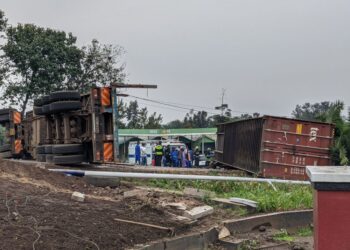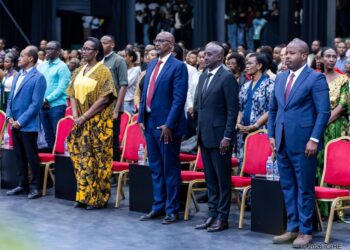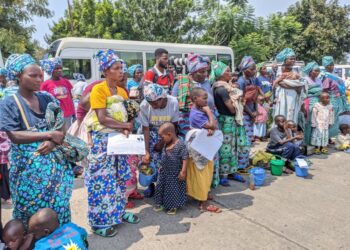The sun rises over the rolling red hills of eastern Rwanda, spilling across rows of makeshift homes in Mahama Refugee Camp. Children chase one another barefoot down dusty lanes, their laughter carrying through the cool morning air.
For some, this is the only home they have ever known.
Nearly ten years ago, in the chaos of Burundi’s 2015 political crisis, thousands fled across the border with what little they could carry. Today, Mahama is home to about 55,000 Burundian refugees, making it one of the largest settlements in East Africa, according to the United Nations High Commissioner for Refugees (UNHCR).
Among them is 18-year-old Celestin Niyonzima, who arrived when he was only eight and knows Burundi only through stories.
“I cannot say I have been there,” he says, eyes fixed on a tattered soccer ball at his feet. “But I dream of visiting one day.”
Jeanine Nduwimana, a mother, recalls fleeing with her child amid gunfire and rumors of arrests.
“I wanted to protect my child,” she says softly. “But I never imagined we would stay this long.”
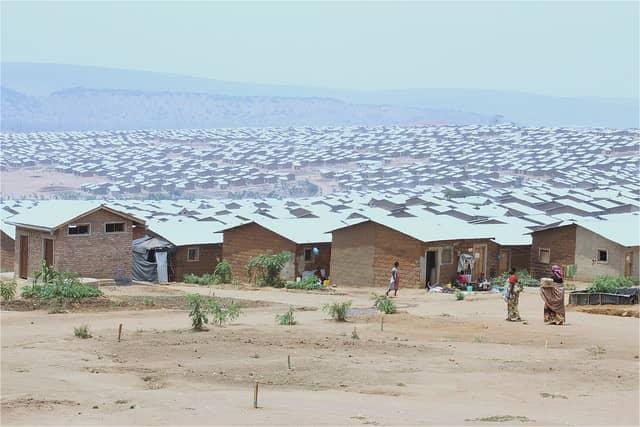
Life in Limbo
Mahama has grown far beyond the tent city it once was. Corrugated iron roofs now replace canvas, and concrete classrooms hum with lessons in English and French. Clinics provide vaccinations and prenatal care; markets buzz with traders selling vegetables, fabric, and handmade goods.
“This place is safe,” says Isaac Uwizeye, 27, a former university student who now teaches English. “But safety is not the same as freedom.”
Yet daily life is still a struggle, with families stretching meager food supplies through casual work inside the camp.
Andrea Bagnoli, World Food Programme Rwanda Country Director, stresses the impact:
“Food assistance remains a lifeline for many families in Mahama. However, funding constraints have led to reductions in rations, impacting nutrition and well-being. We call on the international community to increase support so that no refugee goes hungry as they build new lives far from home.”
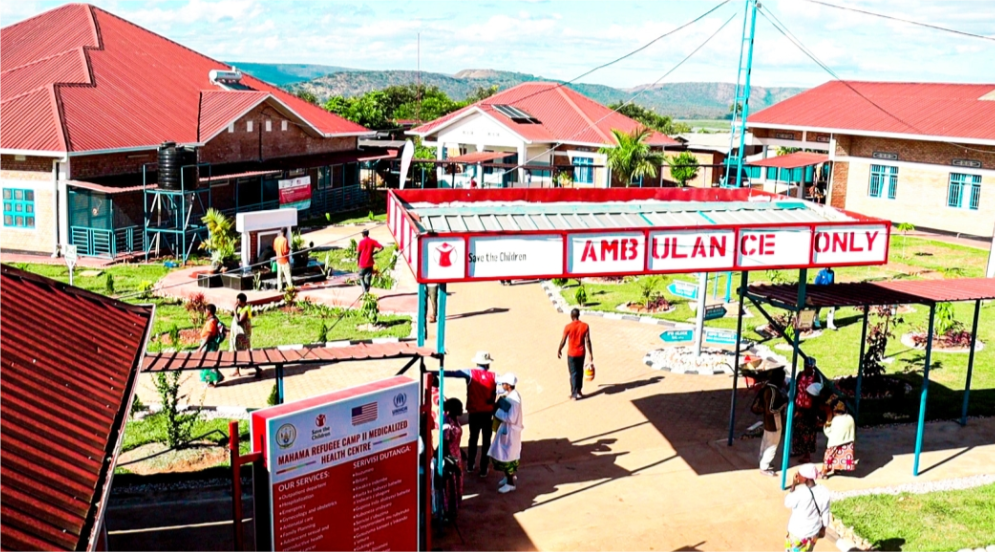
Between Safety and Uncertainty
Since 2020, more than 30,000 Burundian refugees have voluntarily returned home, UNHCR reports. But most remain in Mahama, wary of political reprisals.
Burundi’s government, led by President Évariste Ndayishimiye, faces criticism for suppressing dissent. Human rights groups continue to document cases of intimidation, arbitrary arrests, and enforced disappearances of returnees.
“We cannot send people back into harm’s way,” Says a UNHCR official in Mahama.
“Refugees must be able to make an informed, voluntary decision.”
Rwanda’s Ministry of Emergency Management (MINEMA) echoes this cautious stance:
“Return is a process,” A ministry official said. “Rwanda remains committed to providing protection and essential services to Burundian refugees.”
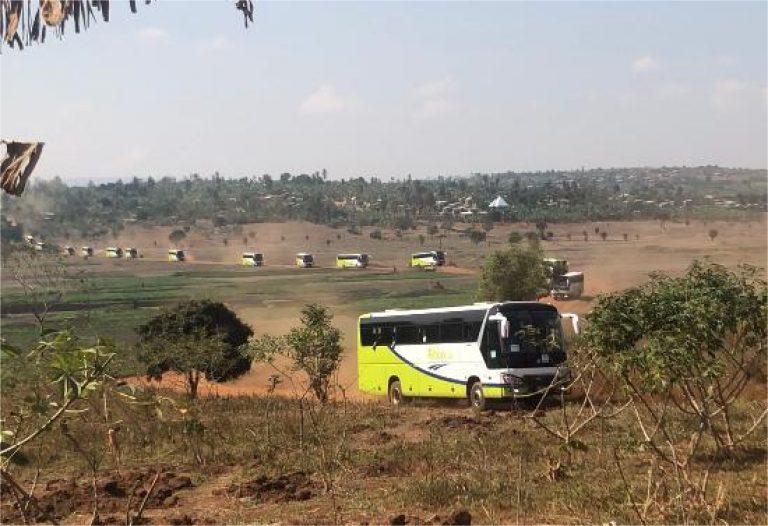
Dreaming of Home
Celestin often gathers with friends beneath a mango tree. Though he has never crossed the border, he feels Burundi pulling at his heart.
“I want to study, maybe become a teacher like Isaac,” he says. “But I also want to know my roots.”
Elsewhere, Anastasie, 52, once a civil society activist in Bujumbura, recalls receiving threats before she fled.
“I can’t go back while the people I stood for are still in danger” She explains. “I carry hope, but also fear.”
For Jeanine, each day is a mix of resignation and longing.
“My child is growing up here, speaking Kinyarwanda better than Kirundi. Sometimes I think Mahama is home. But I still dream of Burundi.”
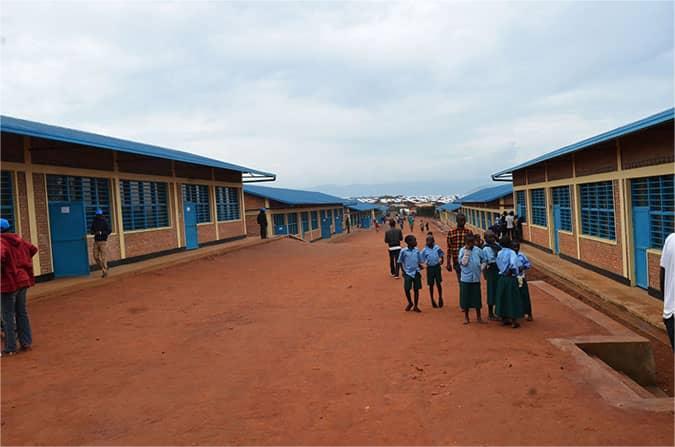
Camp management officials say they share that tension
“Managing Mahama means addressing immediate humanitarian needs while also thinking long-term,” says a camp official. “We try to expand education and vocational opportunities, but refugees need durable solutions whether here or back home.”
A Regional Crisis
Mahama is part of a broader displacement challenge in the Great Lakes region, where conflicts in the Democratic Republic of Congo and Burundi have uprooted hundreds of thousands.
International law, especially the 1951 Refugee Convention and its principle of non-refoulement, protects refugees from being forced back to danger. Rwanda has been praised for upholding these standards even while navigating complex relations with Burundi.
Experts warn that without durable solutions safe return, local integration, or resettlement abroad camps like Mahama risk becoming places where hope slowly erodes.
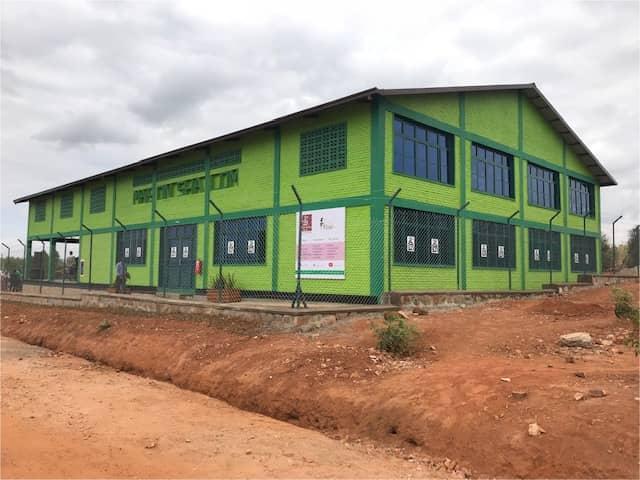
As the sun sets, orange light flickers across the dust-covered walls. Children practice soccer drills on open fields, their voices rising above the camp.
For many, this sprawling settlement with its schools, markets, and fragile hopes has become home.
As night falls over Mahama, the hopes of those who call it home persist.
“Maybe one day, we will go back,” Jeanine says, eyes fixed on the horizon where Burundi’s hills lie just beyond reach. “Until then, we keep building our lives here. Because sometimes, survival is the greatest hope.”


